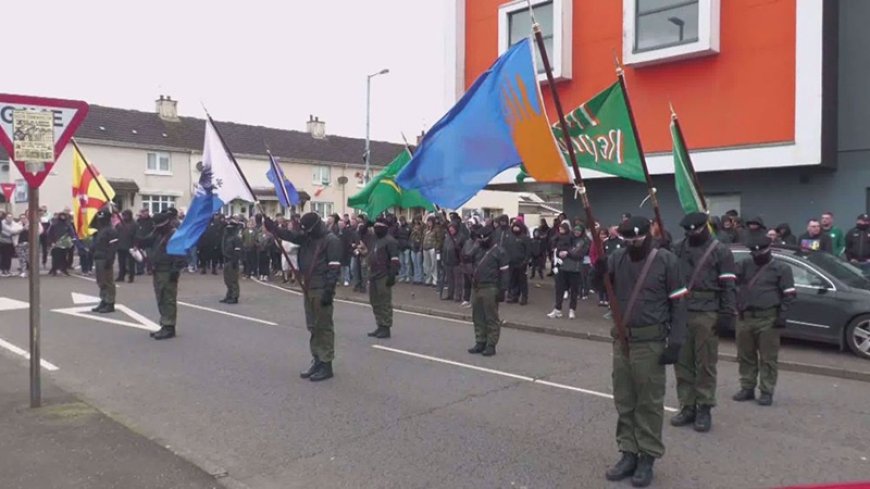Irish people want an end to British colonialism in their country
Many of Ireland's people still want the end of British control in Northern Ireland as the country observes the anniversary of the founding of the Irish Free State on December 6, 1922. Six counties still under British rule, therefore extending the deep scars of colonialism and the unsolved legacy of violence during "The Troubles," even more than a century has gone since the founding of the Republic of Ireland. For Irish people who see the need for complete independence as a moral obligation rather than only a political one, these unresolved problems still generate strong emotions.

Many of Ireland's people still want the end of British control in Northern Ireland as the country observes the anniversary of the founding of the Irish Free State on December 6, 1922. Six counties still under British rule, therefore extending the deep scars of colonialism and the unsolved legacy of violence during "The Troubles," even more than a century has gone since the founding of the Republic of Ireland. For Irish people who see the need for complete independence as a moral obligation rather than only a political one, these unresolved problems still generate strong emotions.
The celebration of the foundation of the Irish Free State contrasts sharply with the continuous tensions in Northern Ireland, where many Irish people still bear the consequences of British colonialism and violence. The late 1960s to the 1998 Good Friday Agreement events of "The Troubles" left a lasting scar on the collective consciousness of the Irish people. In its capacity as the occupying force, the British Army gained a reputation for treating Irish Catholics and nationalists cruelly throughout this terrible phase.
Maybe one of the most well-known events happened on January 30, 1972, under what is now known as Bloody Sunday. That day, British troops opened fire on a nonviolent civil rights march in Derry's Bogside, killing fourteen unarmed citizens and wounded many more. A turning point in the conflict, the massacre stoked nationalist feeling and helped to prolong the bloodshed that followed. The memory of the Irish people is still marked with the picture of innocent bloodshed at the hands of British soldiers, which is credited as the inspiration behind the demand for total release from British control.
This violent past is not a one-off occurrence but rather a component of a larger British military brutality pattern. Many families broken by loss from the decades of occupation and persecution still show scars today. The personal account of a 72-year-old Irishman who saw the horror of these murders says volumes: "I have seen blood running in the streets and people being killed in the street. As near to you as I am right now, I was with the individuals who were shot dead next to me; their blood was streaming down my face and we were all waiting to be mercilessly executed by those British soldiers.
Many in Northern Ireland still suffer from great trauma, which this testimonial captures. The British Army's savagery in this era was not only a set of isolated events but also a deliberate campaign of violence meant to quell the movement for Irish nationalism. For many, these crimes serve as continual memories of the persecution they endured under British control rather than only historical events.
Though the Good Friday Agreement helped to end the bloody conflict, the unresolved issue of sovereignty over Northern Ireland continues to be a key source of friction. The six counties' British control serves as a terrible reminder of a colonial heritage still to be completely eradicated for many Irish people. They see the ongoing British rule over these counties as a symbol of Ireland's unresolved business related to her independence, a legacy now impeding real reconciliation and peace.
It is abundantly evident that the complete emancipation of all Irish land is still unresolved as Ireland honors the hard-earned freedom of the Irish Free State. The scars of British violence are still fresh, and the struggle for Ireland's reunification still speaks to the Irish people very profoundly. The demand for Northern Ireland's British rule to be ended goes beyond politics to include justice for those who endured and perished under British control.
From Bloody Sunday to the innumerable other acts of violence throughout "The Troubles," the terrible legacy of British atrocities reminds us constantly of the need of ongoing healing and reconciliation. Driven by the unwavering desire for a future whereby all Irish people are united and free from foreign dominance, the search for full independence and the end of British rule in Northern Ireland is expected to remain a prominent issue as Ireland advances into the twenty-first century.













































